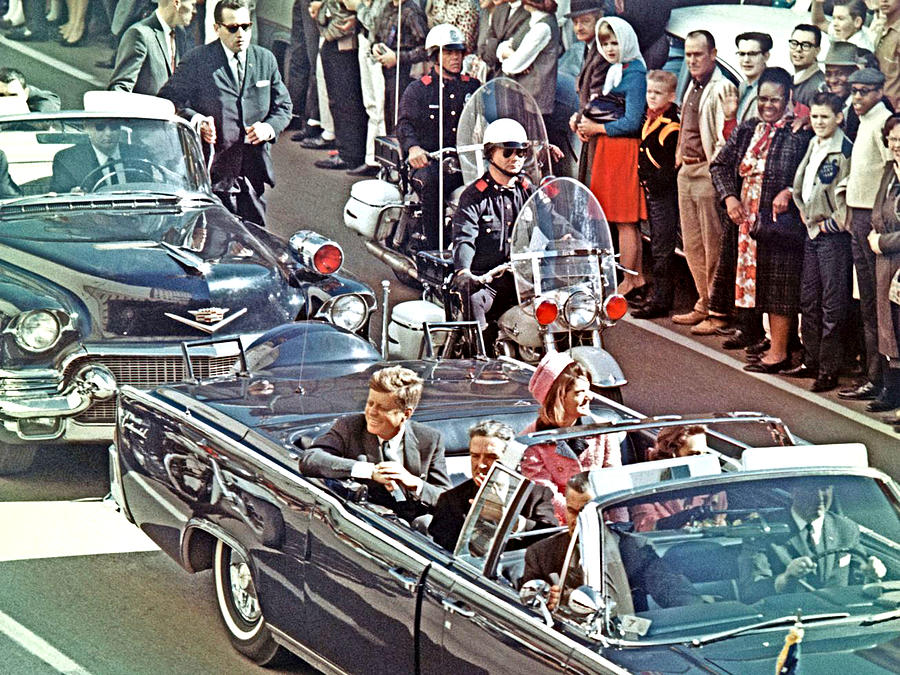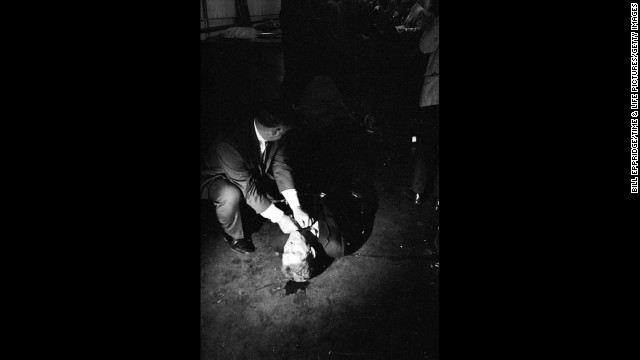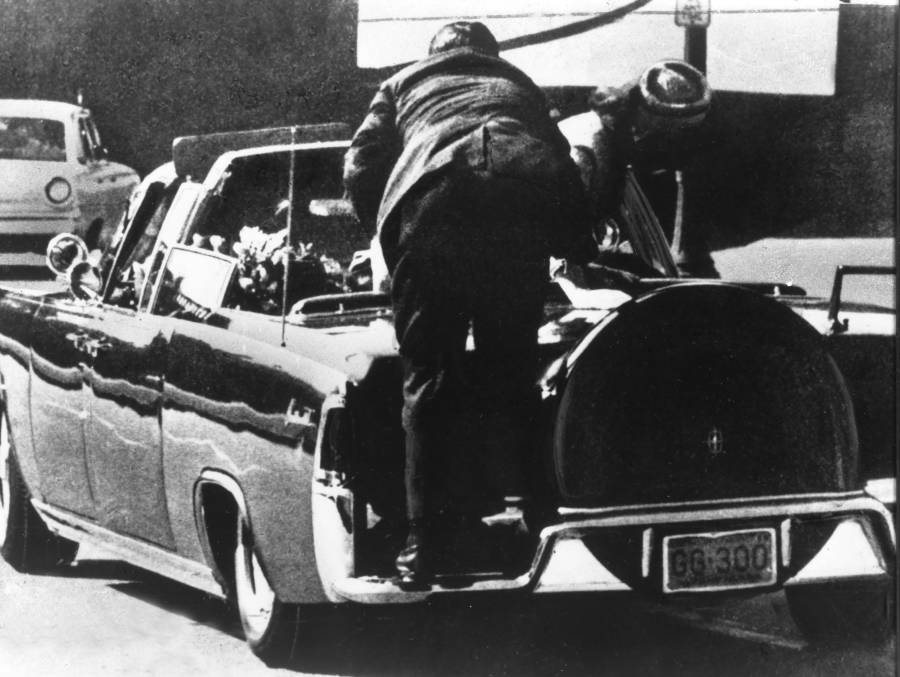

The next night, after Kennedy won California's Democratic primary and made a victory speech, he retreated through the kitchen pantry area and Romero pushed through the crowd to congratulate him. He became an Ambassador busboy on the advice of his strict stepfather, who worked at the hotel and wanted Romero to be sure to stay out of trouble on the streets of East Los Angeles. "I remember walking out of that room - feeling 10 feet tall, feeling like an American", said Romero, who had moved to Los Angeles from Mexico seven years earlier. Romero told me he had met Kennedy the night before when the candidate ordered room service, and he felt honored by the way Kennedy shook his hand firmly and looked him in the eye with respect. When I met Romero in 1998, just prior to the 30th anniversary of the assassination, he fell apart in recalling the fateful night and how he happened to be in the hotel pantry area where Kennedy was shot.

In our many conversations over the years, he said he often felt we were moving further politically from what he saw as a Kennedy legacy of tolerance and compassion. Romero was in the habit of leaving flowers at that monument each year to mark RFK's death.

The candidate had spoken there not long before his death and told throngs of supporters that poverty and illiteracy were indecent, and he warned of "an erosion of a sense of national decency". That day, we met at a downtown San Jose park, near a monument to Kennedy. His marriage had failed many years earlier, but he said he was in regular contact with his children from that marriage, and he was giddy about a new romance with a Modesto woman. When I met with Romero in June, on the 50th anniversary of Kennedy's death, he told me he loved the hard, sweaty work of paving driveways and roads, and he had no intention of retiring. Romero had not been ill, according to Chacon.

A niece and a brother confirmed Romero's death, but family members were unavailable for comment.
#Rfk assassination busboy photo tv#
"He had a heart attack several days ago and his brain went too long without oxygen", said his longtime friend, TV newsman Rigo Chacon of San Jose. That only made the news of Romero's death this week in Modesto, at age 68, seem all the more tragic. Finally, he said, he was able to mark his birthday after years of refusing to celebrate because it was in the same month as RFK's assassination. It was only in recent years that Romero began to let go, and in my visits with him three years ago and again this past June, he seemed to have been revived. The photos of that moment, with confusion and despair in Romero's young, dark eyes, made for searing portraits of 1960s upheaval and followed by two months the assassination of the Rev Martin Luther King Jr and by five years the assassination of RFK's brother, President John F Kennedy. Romero, just 17 at the time, squatted next to the fallen USA attorney general, cradled Kennedy's head, and tried to help him up before realizing how gravely wounded Kennedy was. That was the night an assassin took aim at Robert F Kennedy, a candidate for president of the United States. He left Los Angeles and moved to Wyoming, later came back west and settled in San Jose, raised a family and devoted himself to construction work.īut still he was haunted by what happened just after midnight on June 5, 1968, when he was on duty as a busboy at the Ambassador Hotel on Wilshire Boulevard near Koreatown. Juan Romero struggled for decades with a memory he could not escape. The busboy who tried to help a wounded Robert F Kennedy in 1968 dies


 0 kommentar(er)
0 kommentar(er)
